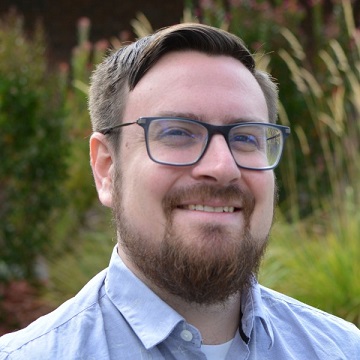Industry is not a wrong turn
from the academic path
Martin E. McBriarty
I was never really looking for an industry job. “They’ll pay well, but you’ll have to work on their pet projects,” I’d hear from colleagues in my PhD program. “Wouldn’t you rather research what you want?” But here I am, in a stimulating and impactful job as an industrial materials scientist.
Finding my way to here was an exercise in embracing change. Through my PhD and postdoc, I dreamed of leading an academic research group, mentoring generations of scientists and engineers, and rubbing suede-patched elbows with the global scientific community. I tried over and over again to land a faculty position at a major university. But as time ran out on my postdoc contract and interviews for faculty jobs were scarce, I faced a decision: would I take a chance on another postdoc to grow my CV, or was I ready to travel a different road?
It wouldn’t hurt to apply for an industry job, I thought. After all, I could only choose my path if I had job offers. Compared to the postdoc jobs I applied for, though, none of the industry postings looked like a great match. Many would ask applicants to have a particular skill set, but none would use all the skills I’d cultivated. For each job application, I ruthlessly sidelined most of my CV, refining my cover letter and resume to highlight my experience in the areas that matched the employer’s needs.
Applications led to interviews, culminating in a few offers for a second postdoc stint. I was just about to accept one when I got a call from Intermolecular, a materials research company in Silicon Valley, with an offer for a Scientist position in their internal research & development group. Scientist! While a second postdoc might have led me toward the faculty position I’d always wanted, another career was right in front of me.
I was skeptical. I had a lot of questions for my potential employer. How is the work-life balance? (Pretty good – I could leave work at work.) Do they engage with the scientific community? (Yes, I should publish and present at conferences.) What kind of research capabilities are available? (Lots of tools I’m familiar with; in fact, they want my help to improve them.) The more questions I asked, the more it sounded like a great fit. I accepted the offer.
At Intermolecular, I entered a research environment with a familiar spirit of collaboration but a much faster pace. My main job is to develop new capabilities to offer our customers. Within this scope, I have plenty of freedom to set goals, shape projects, and work with specialists of many backgrounds. Since industry demands are constantly evolving, time is the most limited resource. One of the biggest challenges is choosing and sticking to a set of research questions that can quickly bring a project to fruition. Fortunately, this leaves plenty of questions upon which to build the next project.
As satisfied as I am here, change is always around the corner. As people build new skills, they often switch companies to advance their careers, or they may seek a different work culture or pace. Some researchers move into management or sales roles. Some may even transition back into academia. In my last faculty job hunt, I found several postings looking for candidates with industry experience. I’m glad to know the door to academia is still open, should I want to try again.
However, change is not always invited. Companies rise and fall, big companies acquire little ones, and priorities shift in response to economic headwinds. Layoffs happen. It’s deeply unsettling to find a collaborator’s office empty after “workforce rebalancing”. Fortunately, in a rich economic ecosystem like the Bay Area, there are always other opportunities to pursue. (Side note: the value of a broad professional network may not be obvious until you really need it.)
When transitioning from academia to other careers, it might seem like we’re abandoning the path we were groomed for. We may have to set aside some of the technical skills we’d developed. We may feel like we’re missing out on the apparent stability of the tenure track. But no matter what career path we take, we carry forward the most important skills from our PhD: figuring out what needs to be done, learning what’s been done before, assembling resources, analyzing data, and communicating results. The PhD experience gives us the flexibility to quickly start up anywhere, as long as we stay curious and make the most of change.

Dr. Martin McBriarty is a materials scientist at Intermolecular, Inc., where he investigates thin film deposition for electronic devices
Related Content:

Guest Forum
Is a career in industry right
for me?
